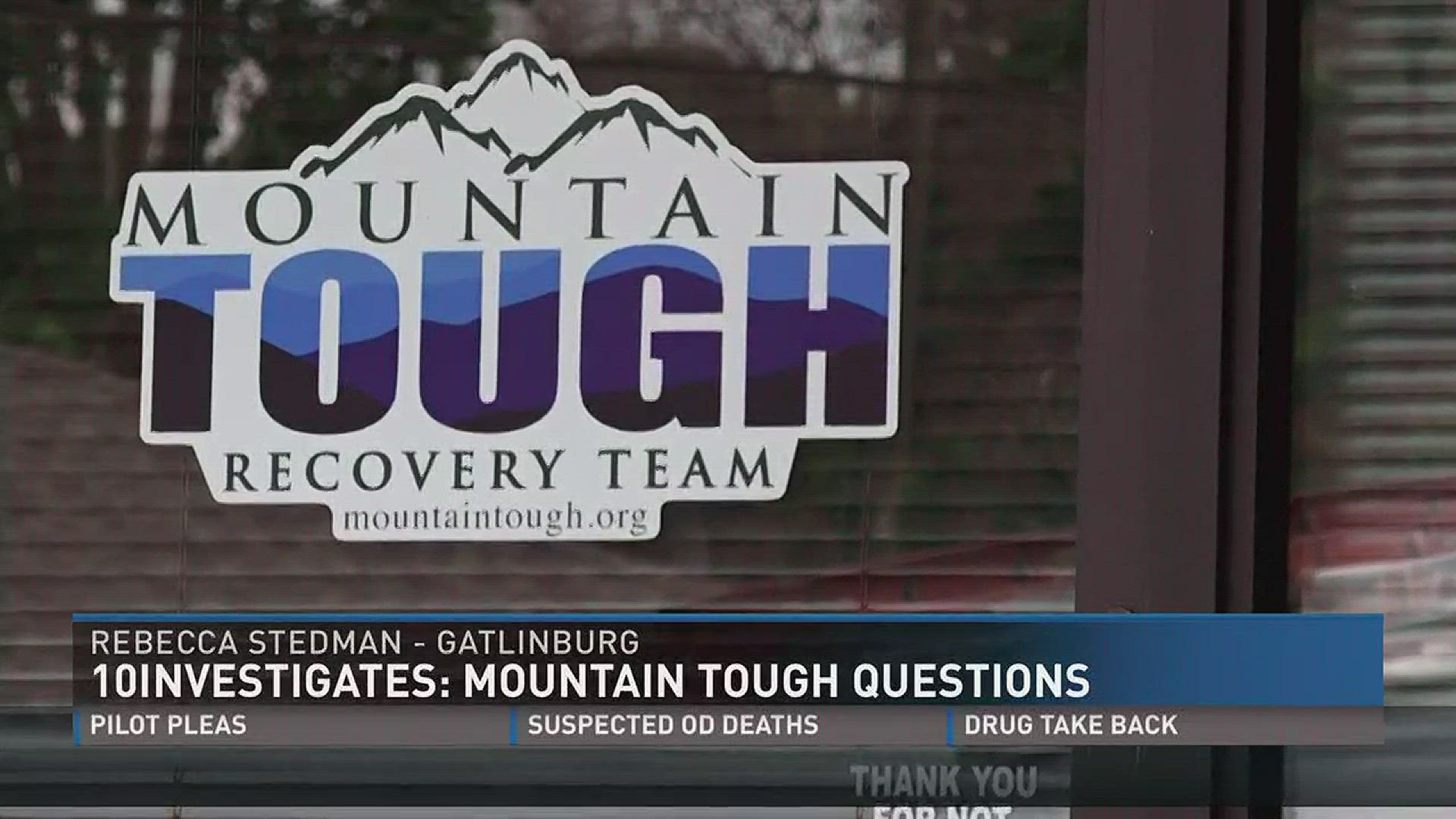In Gatlinburg, wildfire survivors are looking for answers – not just from city leaders, but other groups involved in Sevier County’s recovery.
Gatlinburg resident Dinah Bays voiced her concerns about the Mountain Tough Recovery Team at a recent Gatlinburg City Commission meeting. She told the standing-room only crowd that she wants to know more about the group's priorities and how it distributes aid.
“Who set the guidelines, the criteria, as to how Mountain Tough was going to operate, who they’re focusing on?” she said.
“I think Mountain Tough is a bit of a mystery,” she told 10News.
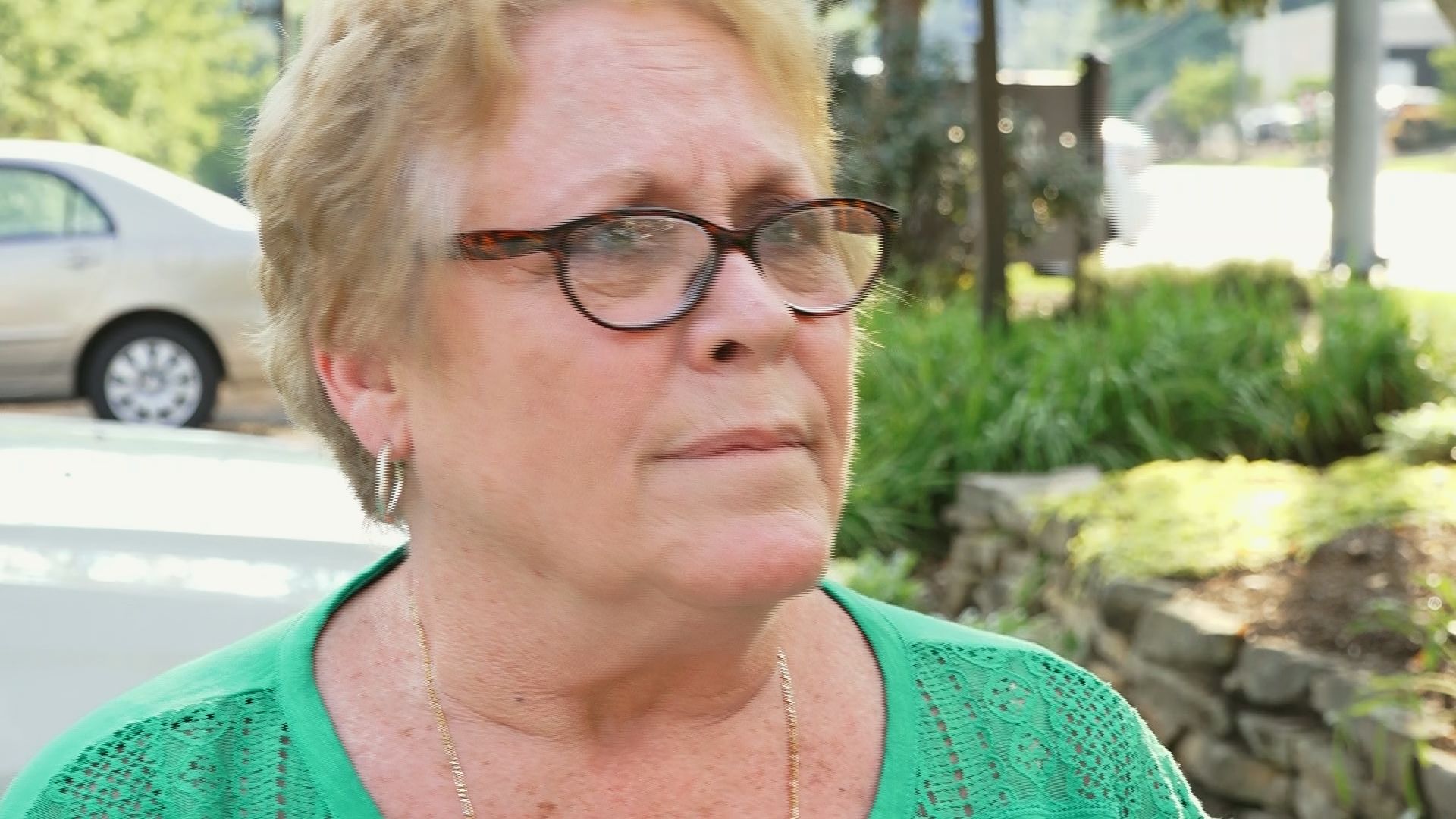
10News took that question to Jeff Conyers, who sits on the board that set the Mountain Tough Recovery Team’s guiding principals. He’s also executive director for The Dollywood Foundation.
“The three big ticket items right now are transportation, temporary housing and medicine,” he said. “So we’re going to continue to help those people.”
Conyers recently became the interim executive director for Mountain Tough, following Janice Hendrix’s abrupt resignation last week.
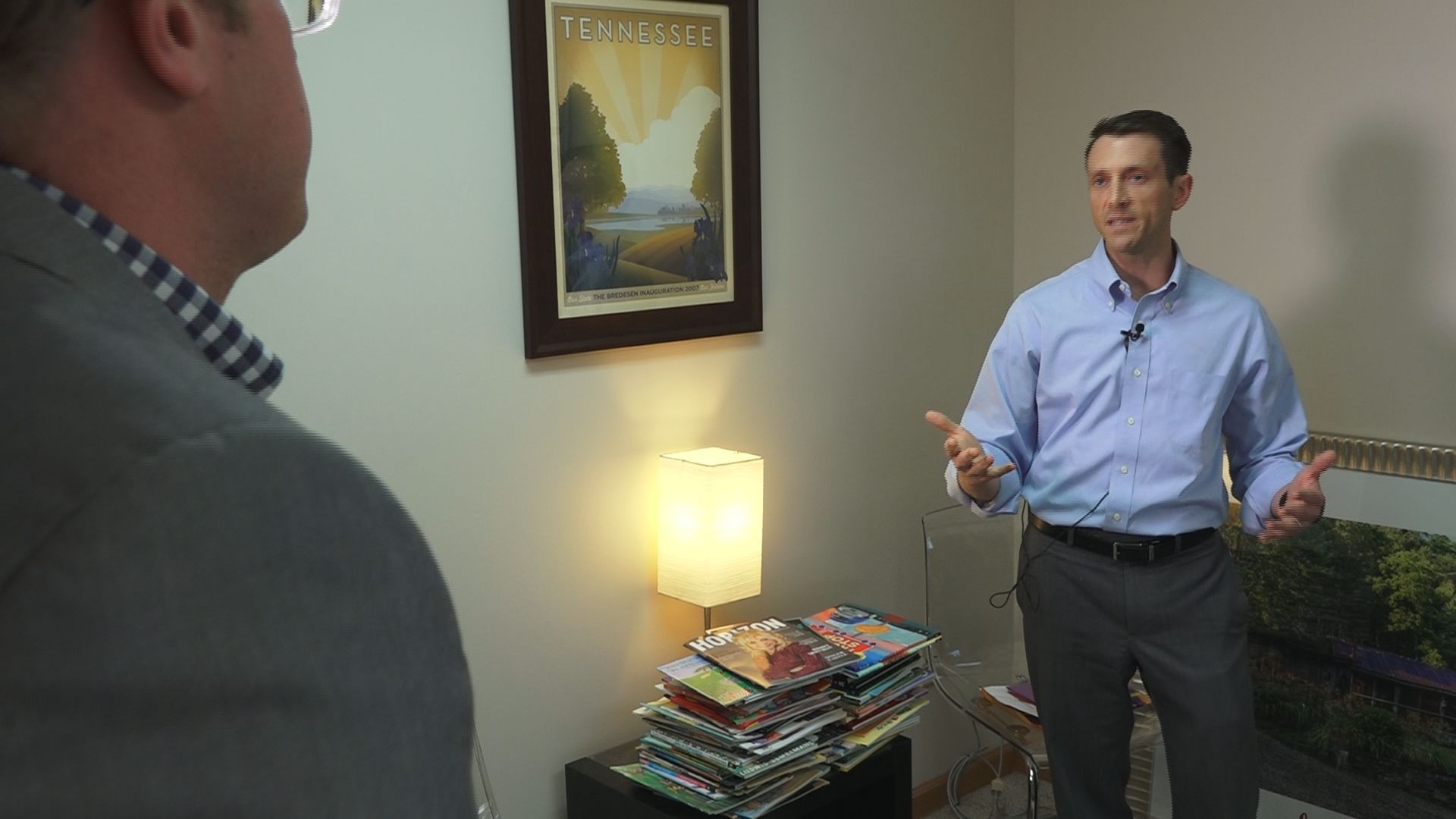
As to why Hendrix stepped down, Conyers said he didn’t know, and couldn’t discuss her employment. He said it was her decision, though.
“It was, she submitted her letter of resignation to the board and the board accepted it,” Conyers said.
Preparation
Genie Brabham, who lost her Chalet Village home in the fires, wanted to know what the group has accomplished in the nearly eight months since.
“I think they opened too fast, and didn’t have resources set up,” she said. “The correct resources, numbers to help us.”
Brabham has applied for assistance from Mountain Tough for tree removal, she said, and expects to receive it soon.
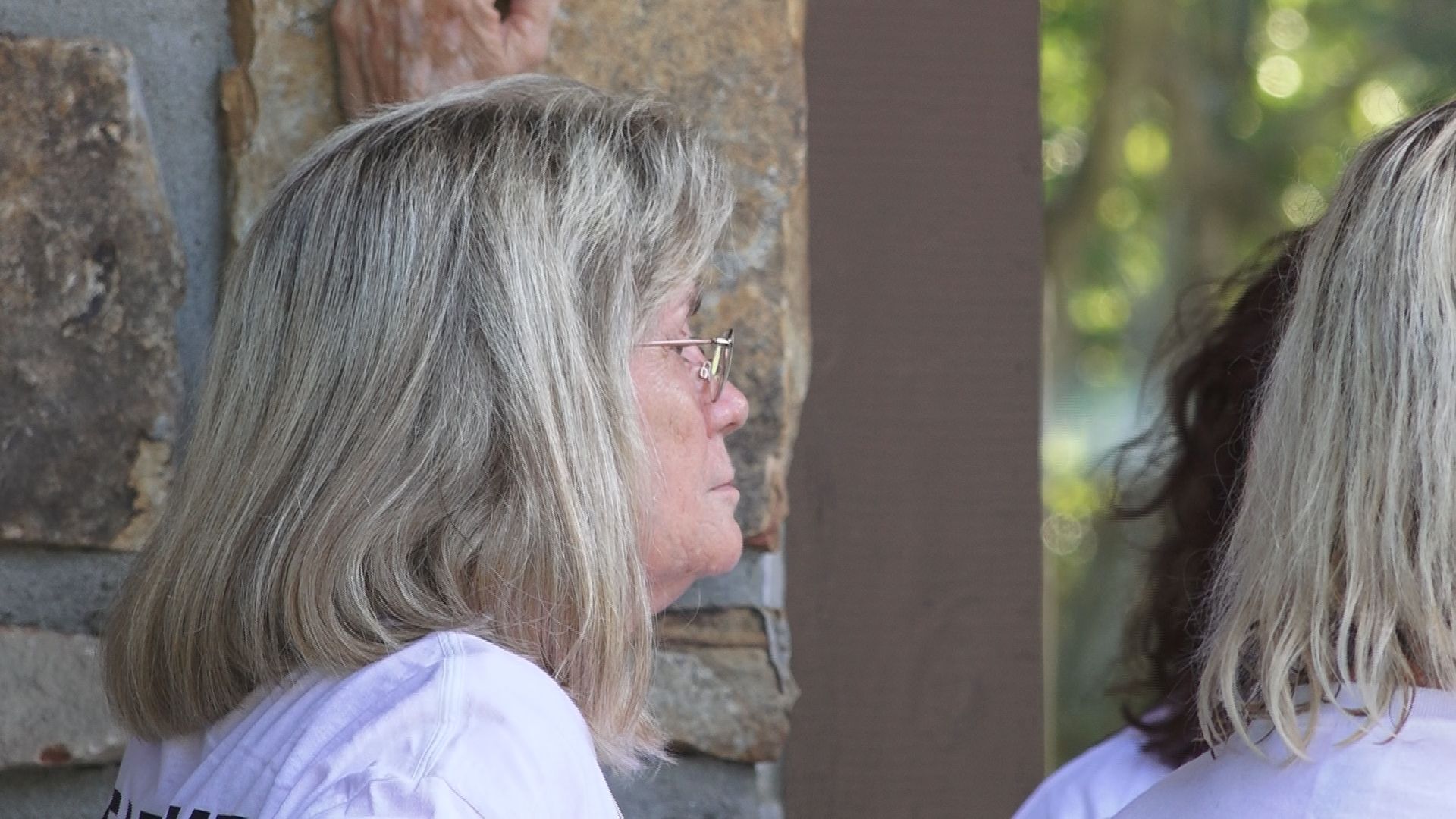
Conyers said Mountain Tough has $3.5 million to its name right now, and spends $25,000 a month on operating expenses like salaries and insurance.
The majority of that funding came in May when the Dollywood Foundation announced it was turning over $3 million from the My People Fund to Mountain Tough. Donations of $50,000 each from Sevier County, Gatlinburg and Pigeon Forge, and a nearly $100,000 donation from Food City factor in as well.
Conyers said he hopes to accelerate the group’s work in the coming months.
“Since July 1, $35,000 has gone out the door [in aid],” he said. “But that doesn’t even quantify all the other help that’s been given to families that have shown up and sought help from Mountain Tough.”
He noted the group has met with 250-300 people, and are working on a recovery strategy.
Conyers said a factor in the delayed response was the wait for tax-exempt 501(c)(3) status from the IRS. That application was approved June 28, with an effective date back to Feb. 1, 2017. Without tax-exempt status, Mountain Tough was forced to leave relief money in the care of the East Tennessee Foundation.
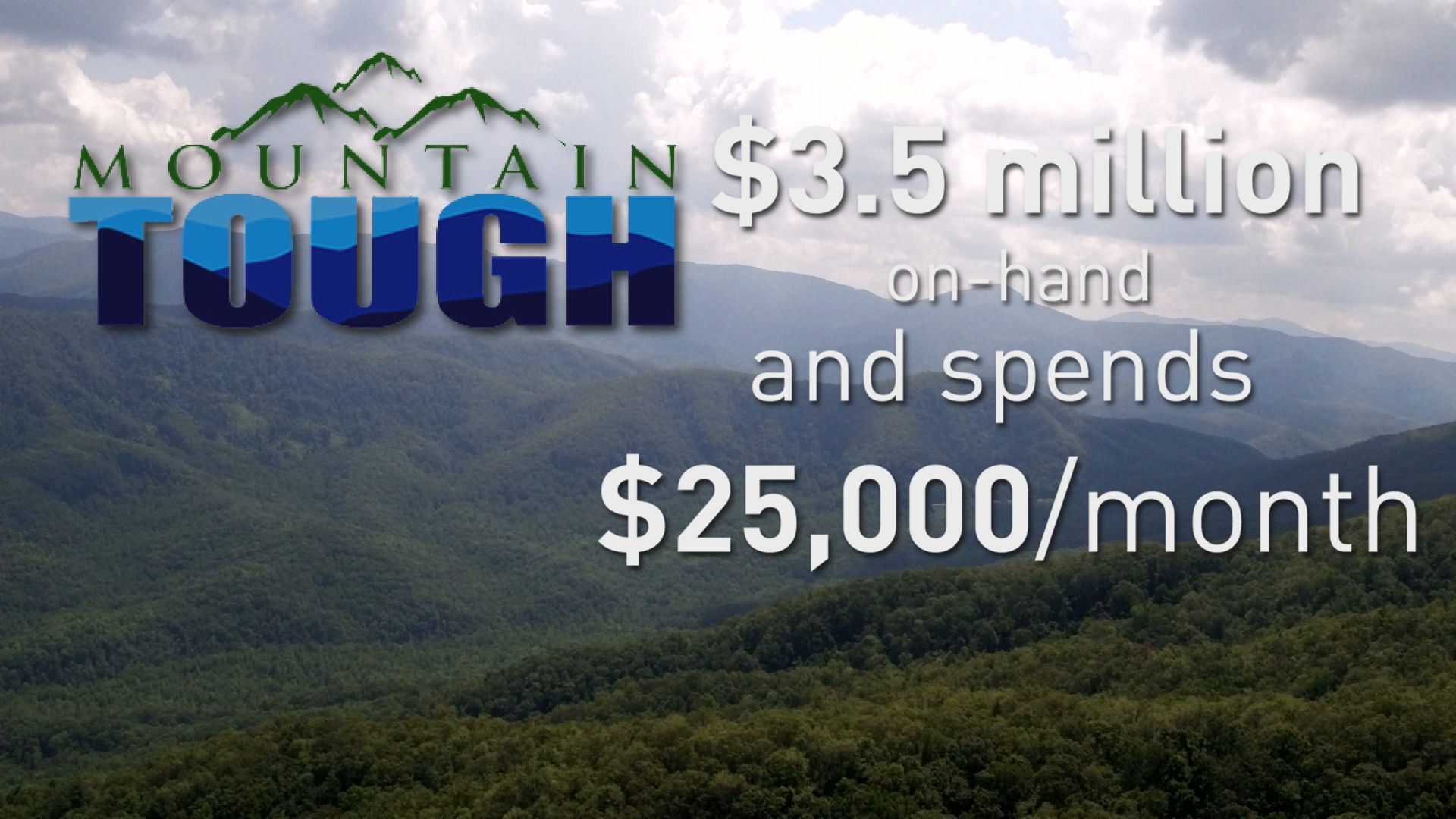
“I think it’s always frustrating when you want to help people and know there’s a need out there,” said Conyers. “You wish you could do more and do more faster.”
“When people have lost everything and are hurting and they need help, you can’t do it fast enough,” he said. “Everybody wants to do more, and faster, so there’s always going to be a level of frustration built in there.”
Volume of Cases
Previously, Appalachia Service Project raised concerns it wasn’t getting enough cases from Mountain Tough. ASP has committed to building at least 25 homes, but must receive the cases from Mountain Tough.
Conyers noted that this week, Mountain Tough and ASP will celebrate the completion of two homes, and more are in the works.
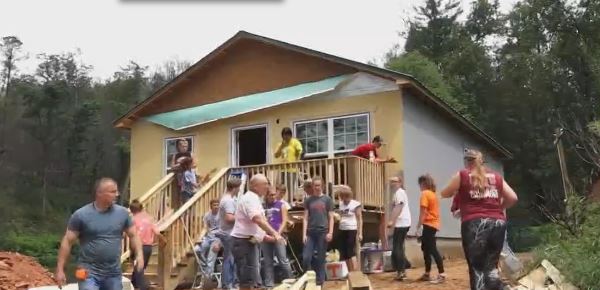
Transparency
“I think people would like to know it’s being handled properly,” said Rebecca Stedman.
Stedman said she wants to see Mountain Tough’s budget, including a ledger of money coming in and out. She believes that transparency is important because of the millions in donations in the group’s care.
“I think the need to put themselves out there more, and maybe do a little bit of restructuring,” she said.
Conyers said it’s not common for non-profits to release their budgets, and declined to do so.
But he agrees with the sentiment.
“I would say one of the biggest struggles is the old classic challenge of humanity, which is communication,” said Conyers.
“I think we can do a better job with that. I think our plan is to communicate more on social media channels and on the website eventually, as I said though, we’re at the cusp of all this work launching forward, so as we starting writing more and more checks and the money’s going out the door, we’re going to be 100 percent transparent on that,” said Conyers.
He said he hopes more people will reach out to Mountain Tough with any concerns, and for assistance. To contact Mountain Tough, click here.
Do you a question about wildfire recovery you'd like 10News to investigate? Email us at 10Listens@wbir.com.

